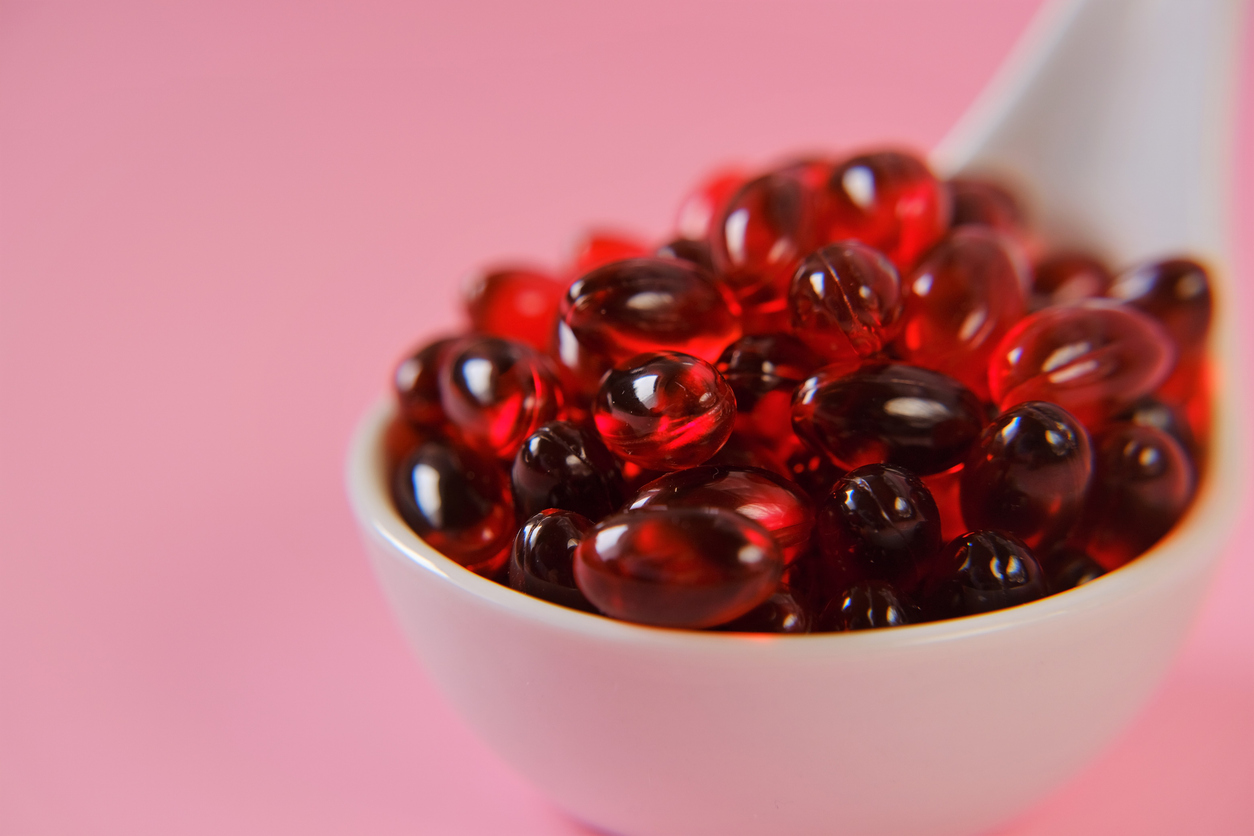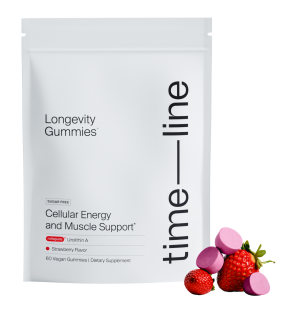Respiratory problems are a concern, especially with frequent wildfires contributing to airborne pollution. Learn how the strategic application of nutritional support can buttress natural defenses, in this piece by our friends at NTFactor®. Plus, for a limited time, they’re offering a special bundle: buy one canister of NTFactor® Lipids Powder and receive a FREE bottle of BreatheClear!
—Dr. Ronald Hoffman
This article contains content from one of our trusted sponsors.
If you live in areas of the country prone to wildfires, you’re likely used to the perennial warnings about the dangers of wildfire smoke. This summer, they’ve been even more top-of-mind, with alarming headlines about the smoke covering swaths of Canada and wafting into the US, blanketing cities in an eerie orange haze and prompting dire warnings about air quality. Like us in New York, you may have even experienced the noxious smoke firsthand. While much of the focus has been on the risks of respiratory damage posed by inhalation of smoke particles, it’s important not to overlook the harmful effects of inflammation and free radical exposure.
What are free radicals?
Free radicals are highly unstable molecules that cause “oxidative stress,” a process that can trigger cell damage and is thought to contribute to health issues ranging from cardiovascular disease and diabetes, to cancer, Alzheimer’s disease, Parkinson’s disease, and even cataracts. And what’s worse—the negative effects of free radicals seem to increase as we age.
Can we prevent exposure to free radicals? Not entirely. In fact, we are the main source of the free radicals that disrupt our lives! Free radicals are naturally created in the body when we do everyday things like exercise or convert food into energy. Furthermore, environmental factors such as cigarette smoke, air pollution (like all that wildfire smoke), and even sun exposure can create stress that generates additional free radicals.
Thankfully, we have a powerful tool to fight their effects!
How antioxidants protect our cells
With air quality shifting day by day, there’s no better time to increase our consumption of antioxidants—substances that protect our cells from the damage caused by free radicals.
Antioxidants can be natural or man-made. Our bodies have the ability to produce powerful antioxidants such as glutathione, catalase, and many others that fight the stress that generates free radicals. Unfortunately, our ability to create these antioxidants weakens with age, and as it does, the membranes of our bodies—including vital cell and mitochondrial membranes—can suffer damage. Damage to these membranes leads to weakening of the systems that help us produce energy, as well as our immune systems. This helps explain why fatigue is one of the top complaints of patients to their physicians!
You already get some antioxidants from your diet—vitamins E and C, carotenoids (like beta-carotene), lutein, lycopene, and zeaxanthin. If you have not already, introduce antioxidant-rich foods including berries like goji, blueberries, and strawberries, green leafy vegetables like kale and spinach, and even delicious dark chocolate to your diet!
But for most of us, our diet doesn’t provide us with the optimal amount of antioxidants to protect our bodies from free radical damage—that’s where high-quality supplements that can provide Membrane Lipid Replacement (MLR) come in.
The power of Membrane Lipid Replacement
Where your diet ends, the benefits of MLR continue!
Oxidative stress results in part from the damage that free radicals cause to the health of our mitochondrial membranes. When these membranes are damaged, they are less equipped to utilize oxygen, which can lead to feelings of fatigue. When we are young, the amount of antioxidant benefits produced in our cells exceeds the damage done by the free radicals we produce. That equation naturally changes in adulthood and is accelerated by illness, consumption of unhealthy foods, nicotine, excessive alcohol, and other factors. This is evidenced by the overwhelming complaint of fatigue in doctor’s offices.
Unfortunately, antioxidants alone cannot repair the damage to cell membranes.
For that, you need something more powerful: Membrane Lipid Replacement (MLR). MLR is the use of natural, protected membrane lipid supplements exclusively from plant sources to safely replace damaged, oxidized lipids in cellular membranes in order to restore membrane function, decrease various symptoms and improve health. The only ingredient proven so far to effect MLR is NTFactor®, an ingredient patented and provided by Nutritional Therapeutics, Inc. By itself, it restores energy and undoes the damage to membranes caused by free radicals. When used with other supplements, it improves the benefits of those ingredients.
Clinical studies have demonstrated the advantages of MLR in restoring membrane and organelle function and reducing fatigue, pain and other symptoms in chronic illnesses and aging patients. In animal studies it has shown the ability to reduce free radicals while increasing cell motility and resistance to oxidative damage.
BreatheClear with NTFactor®
BreatheClear with NTFactor® combines the benefits of MLR from NTFactor® Lipids with quercetin, a powerful bioflavonoid (a type of antioxidant found in foods containing vitamin C). In addition to its antioxidant properties, quercetin is an anti-inflammatory and works to open up the nasal and respiratory passages, thereby making it easier to breathe and reduce sinus problems. A must-have in these days where a rogue weather pattern can shift harmful air our way, and a good staple to have on hand for any time the air is full of irritants, whether they be manmade or as common as seasonal pollen.
This summer, arm yourself with the protective power of BreatheClear with NTFactor® Lipids combined with quercetin, and breathe freely while supporting your body’s fight against free radicals!
References
For antioxidants:
NIH: https://www.nccih.nih.gov/health/antioxidants-in-depth
For MLR:
Seidman, MD. NT Factor® Spares the Age-Related loss of Nerve Function, Energy and Genetic damage in animals. (2002). Otolaryngology- Head and Neck Surgery, 127, pp.138-143.
Approved and supervised by Henry Ford Hosp. IACUC group
# 9 on bibliography at NTFactor.com/research
Agadjanyan, M., et al. Nutritional supplement (NTFactor) restores mitochondrial function and reduces moderately severe fatigue in aged subjects. J. Chronic Fatigue Syndr. 11(3): 23-36 (2003).
# 12 on bibliography
This article originally appeared on Nutritional Therapeutics’ Health Blog, and contains links to products from one of our trusted sponsors.







